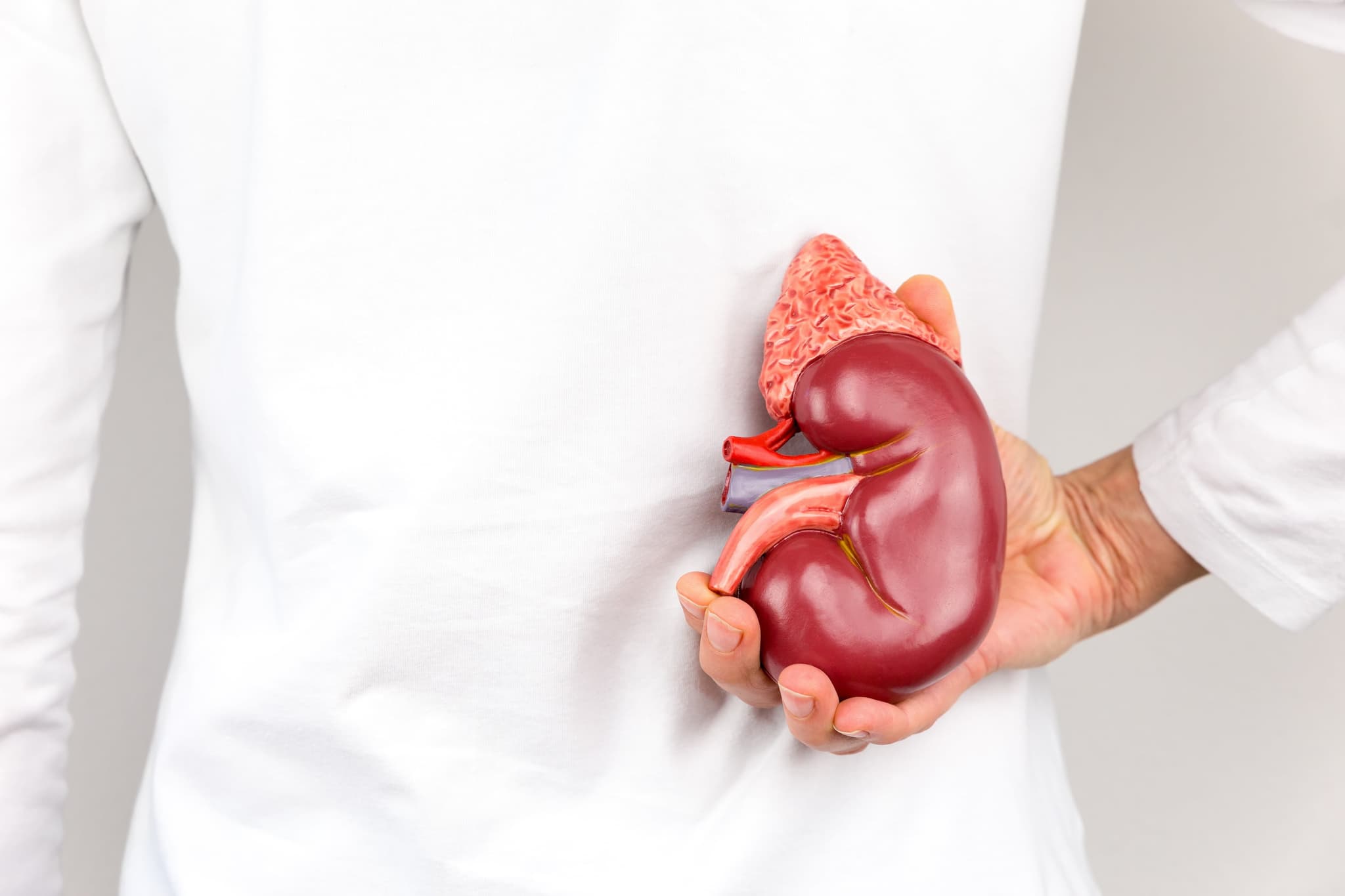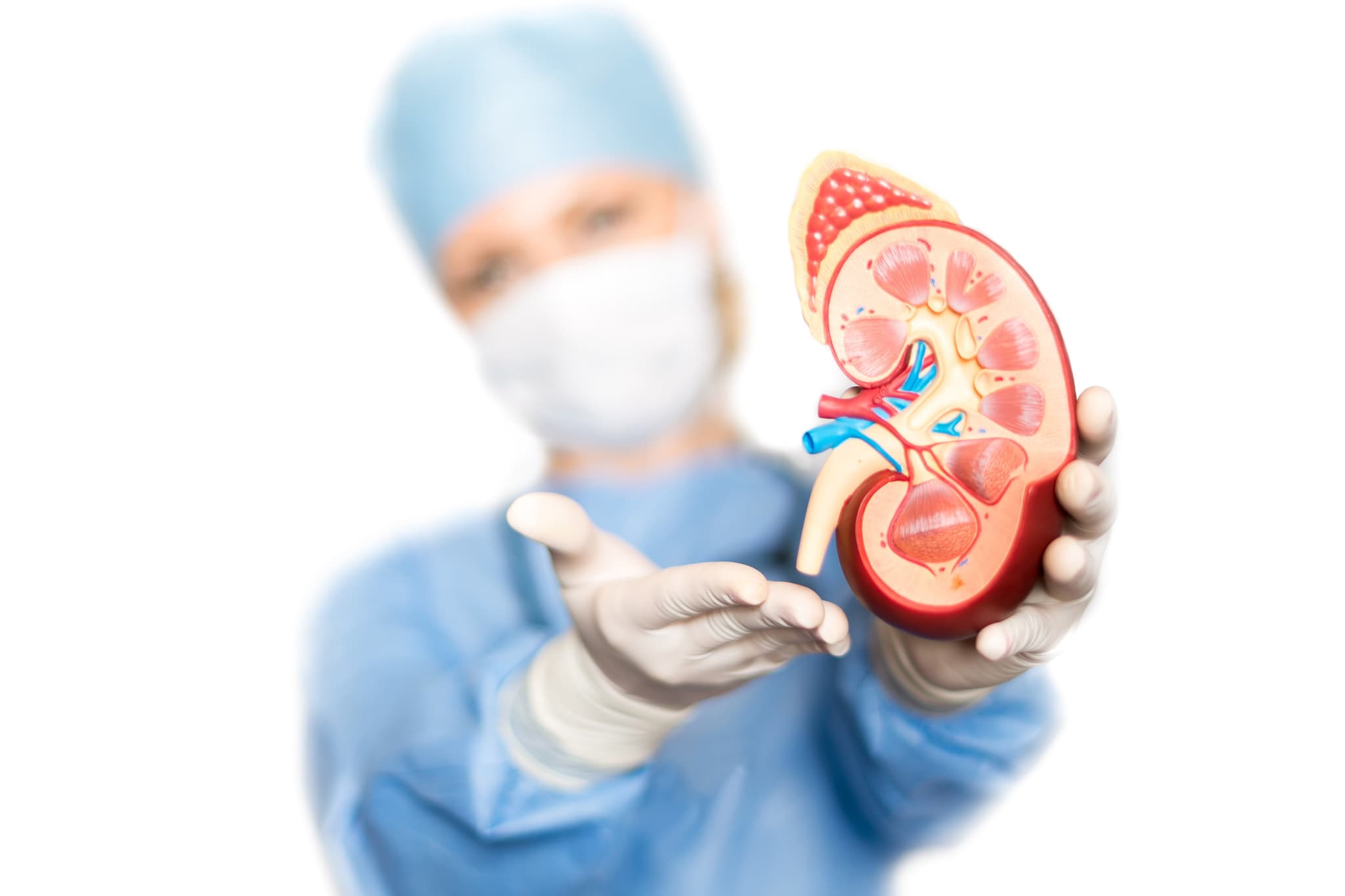
2023-02-15T16:39:02
Understanding Care Coordination & Its Value
- Nephrology
- Value-Based Care
August 4, 2016 | Nephrology
Specialties:Nephrology (Kidney Care)

You know many of your organs well. You can see your eyes staring back at you in the mirror, feel your heart beating when you experience panic and touch the largest organ in your body – your skin – any time you like, but how well do you know your kidneys?
You’re probably aware that you have two kidneys, each about the size of your fist and, not surprisingly, shaped like a kidney bean.
The kidneys are located much higher in the body than you might realize. Your kidneys are located just below your ribcage, one on each side of your spine. You can locate your kidneys by “standing like a superhero,” with your hands on your waist and thumb towards the back. Slide your hands upwards until the top of your thumb and forefinger touch your ribcage – your thumbs are now pointing to your kidneys.
The main job of the kidneys is to keep the composition of your blood stable so that the rest of your body functions well.
Your kidneys do this by performing several essential tasks, such as:
Clearing wastes and extra fluid from the body
Stabilizing electrolytes, such as sodium, phosphate and potassium
Making hormones that help regulate blood pressure, maintain bone strength and make red blood cells
Your kidneys filter about 120 to 150 quarts of blood each day to produce 1 to 2 quarts of urine, which is composed mainly of waste products and excess fluid. Urine moves through long tubes, known as ureters, to your bladder for storage until you urinate.
The kidney is more than just one simple filter – each kidney is actually made of about a million little filtering units known as nephrons. Every nephron features a filter, known as a glomerulus, and a tubule.
Each nephron filters a small amount of blood in a two-step process. The glomerulus filters out blood cells and large molecules but allows fluid and waste products to pass through it. The tubule then filters the fluid again, sending important minerals and proteins back into the bloodstream and directing waste to the bladder in the form of urine.
Kidney disease is a growing problem. More than 20 million people in the United States may have kidney disease, according to the National Institutes of Health (NIH), and many more are at risk.
Several risk factors increase your likelihood of developing kidney disease, including:
Diabetes (high blood sugar)
High blood pressure (hypertension)
Heart and blood vessel cardiovascular disease
Family history of kidney failure
The most common causes of kidney disease are high blood pressure and diabetes; these conditions slowly damage delicate kidney tissue over the years.
Early kidney disease presents no symptoms or warning signs. You may not realize you have kidney disease until it has already reached an advanced stage.
Blood and urine tests are the only way to know if you have kidney disease. One blood test, known as the glomerular filtration rate (GFR), tests how well the glomeruli in your nephrons are filtering your blood. The urine test detects protein that your tubules should have rerouted back into the bloodstream.
You can live a healthy, normal life with only one kidney – many people do. In fact, the National Kidney Foundation says that one kidney can work as well as two. It is even possible to live without kidneys but you would require dialysis, which is a life support machine that filters harmful waste, salt and excess fluid from your blood. Without kidneys or dialysis, these toxic byproducts would damage and destroy body tissues and organs.
Fortunately, medical science has come up with many ways to prevent, detect and treat kidney disease. Kidney doctors, known as nephrologists, specialize in kidney care and the treatment of kidney disease.
To learn more about your kidneys from a nephrologist, contact Revere Health. We have six nephrology locations throughout Utah. Call (801) 429-8000.
WRITTEN BY:
The Live Better Team

2023-02-15T16:39:02

2019-10-10T13:34:53

2019-04-03T13:30:08

2018-03-19T11:05:38
This information is not intended to replace the advice of a medical professional. You should always consult your doctor before making decisions about your health.